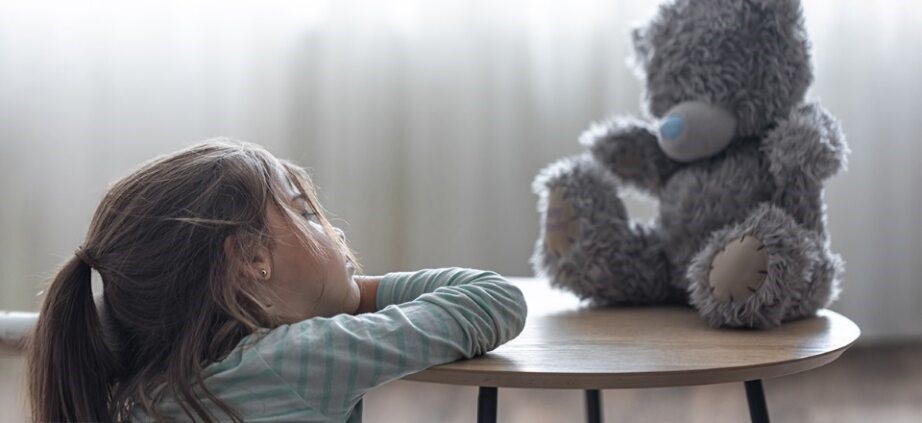Categories
Autism in Children: Signs & Symptoms
Aug 14, 2025
Autism in children is often described as a condition that affects how a child communicates, behaves, and understands the surroundings. But the picture is not always clear. One child may hardly speak, while another speaks but avoids social contact. At Rainbow Children’s Hospital, parents often bring in their worries, and sometimes even the best pediatric neurologist in India is asked to step in for advanced guidance.
Some experts point towards genes, because autism sometimes is seen running in families, though not in every case.
During pregnancy or birth, if there are complications, infections, or exposure to medicines, some think it could trigger the condition.
In many children, brain development looks a bit different, but why it develops that way is not always explained clearly.
Environmental reasons like pollution, toxins or chemicals are sometimes connected, but studies do not always show the same result.
Most agree that it is more a mix of many factors instead of only one. But one thing doctors keep repeating is that it is not because of poor parenting or the child doing something wrong, though such beliefs still exist among some people.
Children may not make eye contact often or they may not return a smile when someone smiles at them.
They may repeat the same actions, like rocking back and forth, spinning toys, or clapping again and again.
Some kids do not respond when called by name even though hearing is normal.
Playing alone often, instead of joining other kids.
Getting very upset if daily routine changes suddenly.
Sensitivity also shows up in daily life, loud noises can feel unbearable, bright lights may cause discomfort, and even the texture of certain clothes or foods can be troubling. Emotional reactions are also not always steady. Sometimes expressions look flat with no visible feeling, and other times the child may show very big emotions without any reason that others can understand.
Disclaimer: This blog aims to provide general information and should not be considered a substitute for professional medical advice, diagnosis, or treatment. Always consult a qualified healthcare provider about your health. If you think you may be experiencing a medical emergency, seek immediate help.
What Causes Autism in Children?
Doctors often say there is not just one reason why autism in children happens, and the full cause is still not really understood. Research keeps happening but answers are not always final.Some experts point towards genes, because autism sometimes is seen running in families, though not in every case.
During pregnancy or birth, if there are complications, infections, or exposure to medicines, some think it could trigger the condition.
In many children, brain development looks a bit different, but why it develops that way is not always explained clearly.
Environmental reasons like pollution, toxins or chemicals are sometimes connected, but studies do not always show the same result.
Most agree that it is more a mix of many factors instead of only one. But one thing doctors keep repeating is that it is not because of poor parenting or the child doing something wrong, though such beliefs still exist among some people.
Early Signs to Look For
Autism in children usually starts showing itself before three years, but many families may only notice much as the signs may come much later.Children may not make eye contact often or they may not return a smile when someone smiles at them.
They may repeat the same actions, like rocking back and forth, spinning toys, or clapping again and again.
Some kids do not respond when called by name even though hearing is normal.
Playing alone often, instead of joining other kids.
Getting very upset if daily routine changes suddenly.
Symptoms as the Child Grows
School life sometimes makes the differences more visible. In school, autism in children can become easier to notice if child does not take part in group activities, prefers to stay aside, or avoids mixing with classmates.Sensitivity also shows up in daily life, loud noises can feel unbearable, bright lights may cause discomfort, and even the texture of certain clothes or foods can be troubling. Emotional reactions are also not always steady. Sometimes expressions look flat with no visible feeling, and other times the child may show very big emotions without any reason that others can understand.
Why Early Identification is Important
Specialists explain that the earlier autism is identified, the better the results in improving behaviour and communication skills. At Rainbow Children’s Hospital, therapies such as speech development sessions, occupational therapy, and behavioural support are given to suit the child’s needs. When the situation appears more complicated, consult the best pediatric neurologist in India, for deeper assessments and guidance in long-term planning. Remember, best is not a slogan but a checklist of criteria that suits your convenience and requirementsSupport for Families
Parents are encouraged not to dismiss the signs as something temporary or just a passing phase. Timely help ensures that the child gains confidence and learns to adapt better with the environment. With structured care, consistent therapy, and a lot of patience, many children with autism learn to express themselves, manage daily routines, and flourish in their own unique ways.Disclaimer: This blog aims to provide general information and should not be considered a substitute for professional medical advice, diagnosis, or treatment. Always consult a qualified healthcare provider about your health. If you think you may be experiencing a medical emergency, seek immediate help.











